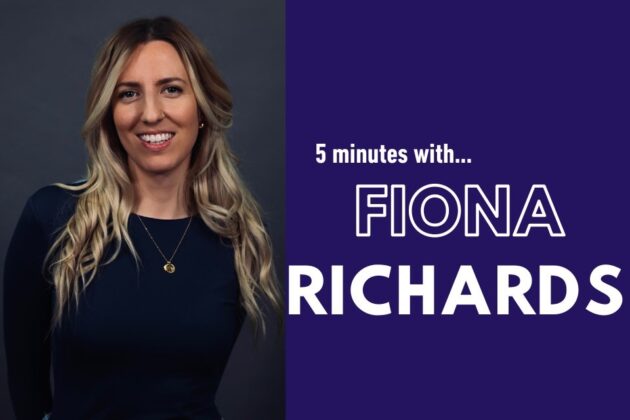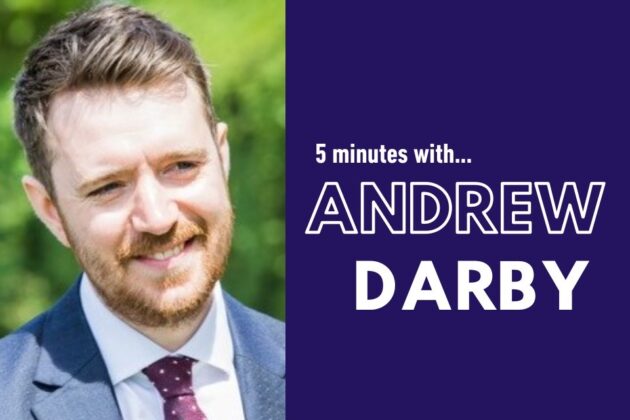GCS Head and Deputy Heads of Discipline: 5 minutes with Fiona Richards and Andrew Darby
There are 7 GCS communication disciplines: Data and Insight, Media, Strategic Communications, Internal Communications, External Affairs, Marketing and Digital. A selection of the GCS community is appointed to represent each discipline. Our Heads of Discipline are:
- Media – Andrew Darby, Department for Education (HoD) and Fiona Richards, Department for Transport (DHoD)
- External Affairs – Kate Whitty-Johnson, Department for Levelling Up, Housing and Communities (DLUHC) (HoD) and Samantha Abrams, MoJ and Davina Collison, DLUHC (DHoD)
- Marketing – Chloe Saklow, Department for Education (HoD) and Jo Parry, ONS (DHoD)
- Strategic Communications – Sarah Clark, DCMS (DHoD)
- Internal Communications – Russell Grossman, Office of Rail and Road (HoD) and Sara Vogt, Ministry of Justice (DHoD)
- Digital – Ed Bearryman, Government Communication Service (HoD) and Zara Farrar, No10 (DHoD)
- Data and Insight – Pamela Bremner, Home Office (HoD)
This month we spoke with Fiona and Andrew who lead the Media Discipline across government, for an interview.
Fiona, Andrew, tell us a little about yourself…
Fiona – I’m the Deputy Head of News at the Department for Transport, jointly looking after a brilliant group of press officers. Prior to this role, I worked with Andrew in the Home Office and spent 4 years or so in the Cabinet Office – with a failed career break travelling around South America in the middle (cheers covid).

Before joining the civil service I did in-house PR for an architecture firm, advocacy work for third sector organisations and worked for the UK and Australian parliaments. I actually joined GCS in strat comms and moved over to media after a couple of years.
Outside of work I live in south east London and constantly tell myself I should have hobbies other than just seeing friends.
Andrew – I’m deputy director of communications at the Department for Education with responsibility for media and social media – a brilliant team with a really inclusive culture. This follows a six year stint at the Home Office where I’d been deputy head of news and had most recently led the protecting vulnerable people pillar. I started my career in Parliament and government affairs before moving into comms roles in the professional services. An old university mate *cough* Kiran Collier at DfT *cough* recommended the GCS and it’s the best professional decision I’ve made.

I live in south east London with my wife and daughter. We’re expecting our second but aside from changing nappies and soft play, I have a passion for live music, cooking and following the trials and tribulations of Leicester City.
What made you want to take on the HoD and DHoD role?
There is something extremely unique about working in government press offices and a lot to be said in swapping war stories and feeling part of a community. We have both really valued the connections we’ve made and the opportunities that affords to get advice and work together. We’ve brought together a group to look at how we can bring together the best and most enjoyable elements of working in media. (Fiona edit: Andrew (also known as Darbs) tricked me into it, but I’m actually pleased he did).
For those new to the communication profession, how would you describe the purpose, and role, of media in government?
Media relations and reputation management is really at the heart of government communications. We’re here to promote, explain and justify government policy-making, to manage relationships with journalists and advise Ministers. No other media teams have quite the impact or exposure in leading on front-page stories day-in and day-out!
Media relations is at the heart of government communications – how do you deal with the combined demands of the general public, ministers and stakeholders?
Media teams are afforded a privilege of access and relationship management is key and a large part of the role. That might be gaining the trust of your Ministers, being able to effectively brief journalists and knowing how to work with the department to understand risks and identify positive stories. Those relationships are key when working at the pace that we do.
These are definitely challenging and stressful roles that we do, but they can also be incredibly rewarding. We really think a strong grounding in media relations will give you the best transferable skills to go on and do anything you’d want in your career.
What is the most successful media piece of work you’ve been involved in?
We both worked together on the Tackling Violence Against Women and Girls brief at the Home Office. It was an incredibly emotive and difficult subject to be working on in the aftermath of the murder of Sarah Everard but the public consultation to inform the Strategy was really strong and helped to inform the Enough campaign. It was rewarding to be working together with stakeholders and other communications disciplines on something where our media approach could directly help to influence a change in public behaviour.
Lastly, what podcast do you recommend for our communicators to listen to?
Andrew – There is a saturation of current affairs podcasts but a recent recommendation (nod to Sam Glanz, DfE Press Sec) is Trendy with pollster Sir John Curtice and former Downing Street adviser Rachel Wolf analysing how political opinion is shaped.
Fiona – Probably not the right answer but I think as communicators working in politics, we can really get sucked in by the Westminster bubble and lose sight of what public sentiment is. I’d recommend communicators listen to a whole range of general pop culture podcasts and get a proper sense of the public mood. Listen to a bit of what everyone else is listening to so we’re not sat in our echo chambers.
